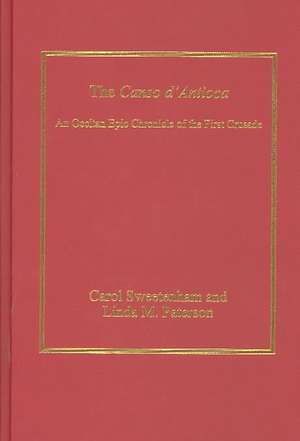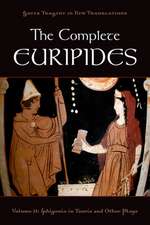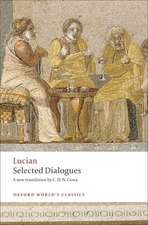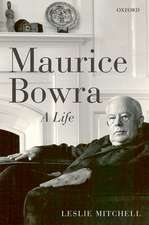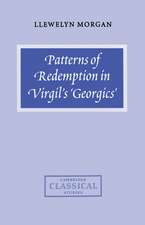The Canso d'Antioca: An Occitan Epic Chronicle of the First Crusade
Autor Carol Sweetenham, Linda M. Patersonen Limba Engleză Hardback – 18 mar 2003
Preț: 764.20 lei
Preț vechi: 1102.79 lei
-31% Nou
Puncte Express: 1146
Preț estimativ în valută:
146.25€ • 158.80$ • 122.85£
146.25€ • 158.80$ • 122.85£
Carte tipărită la comandă
Livrare economică 22 aprilie-06 mai
Preluare comenzi: 021 569.72.76
Specificații
ISBN-13: 9780754604105
ISBN-10: 0754604101
Pagini: 376
Dimensiuni: 156 x 234 mm
Greutate: 0.45 kg
Ediția:1
Editura: Taylor & Francis
Colecția Routledge
Locul publicării:Oxford, United Kingdom
ISBN-10: 0754604101
Pagini: 376
Dimensiuni: 156 x 234 mm
Greutate: 0.45 kg
Ediția:1
Editura: Taylor & Francis
Colecția Routledge
Locul publicării:Oxford, United Kingdom
Cuprins
Contents: Preface and acknowledgements; Introduction; The textual history of the Canso d'Antioca; The Canso d'Antioca and the vernacular epic tradition of the First Crusade; The Madrid fragment as history; Where history and literature meet: the place of the Canso tradition in vernacular literature; Appendix to chapter 4: The allusions to the Roland tradition in the Madrid fragment; Editorial principles and practices; Text and translation; Explanatory notes; Glossary; Bibliography; Index of proper names in the Madrid fragment.
Notă biografică
Linda Paterson is Professor of French at the University of Warwick. Her books include 'The world of the troubadours: medieval Occitan society, c.1100 - c.1300' (CUP, 1993) and 'Marcabru: a Critical Edition', ed. S. Gaunt, R. Harvey and L. Paterson (D.S. Brewer, 2000); she is currently working on an edition of the Occitan tensos and partimens. Dr Carol Sweetenham is a Senior Civil Servant and Associate Fellow of the University of Warwick. Research in progress includes a translation of Robert the Monk's chronicle of the First Crusade (also for Ashgate).
Recenzii
'The editors are to be congratulated on an excellent edition which provides scholars with an edition and a study of a text too long neglected.' Medium Aevum 'The introductory chapters do a superb job of presenting the text as a work of literature and of history, outlining the historical events the Canso attempts to describe, setting the Canso in place as a work in the Occitan and Western European literary tradition. Sweetenham and Paterson have considered not only previous studies of the Canso, but also an incredibly wide range of scholarship, from Occitan linguistics to medieval military tactics; from art history as it applies to their text to Crusade historiography. Underlying all this is their profound knowledge of the Occitan literary tradition as a reference point for the Canso. We can only be grateful.' Mediaevistik 'This edition definitively replaces that of Paul Meyer in the Archives de l'Orient latin (1884).' Crusades 'Sweetenham and Paterson's book is a distinguished contribution to philological and historical scholarship and an important addition to studies on the First Crusade as well as on Occitan epic and medieval vernacular historiography... First conceived in 1965, this magnificent undertaking is now complete, an outstanding achievement of North American scholarship in the field of medieval studies.' Speculum
Descriere
The Canso d'Antioca is part of a much larger epic describing the events of the First Crusade, related to the Old French Chanson d'Antioche but with many unique features, so presenting a double interest to scholars of both history and literature. It is a source text for the First Crusade with information not contained in any other source. It is also an early and seminal text for Occitan epic, few examples of which survive. And arguably it represents the first work of vernacular verse history in France, raising fundamental questions about the junction of epic and historiography. This first modern edition of the text is accompanied by a new translation into English on facing pages, and supported by detailed notes and a glossary of proper names cross-referenced to all major First Crusade sources. The introduction discusses the history of the text and manuscript, the value of the Canso as a historical document, and its place both within the historical tradition of the Crusade and within Occitan literary tradition and 12th-century vernacular historiography.
